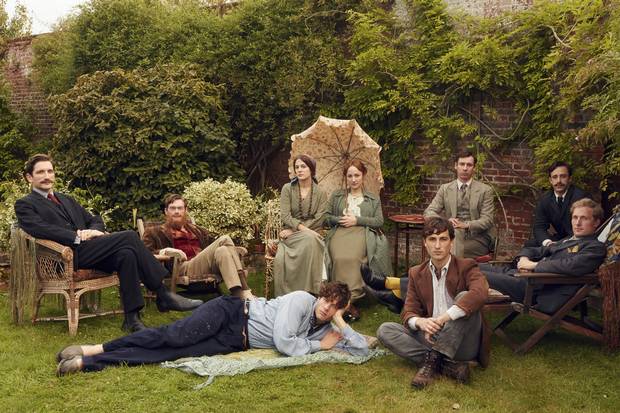I didn’t have very high hopes for ‘Life In Squares’ (the BBC three-parter about the Bloomsbury circle which concluded this week). But the first episode stuck me as promising. The second faltered, and the third was rushed and anti-climactic. Nevertheless it was all much better than expected, with some strong performances.
The main reason for advance pessimism was a certainty that the programme-makers would try to woo their audience with lashings of sex. I don’t know why programme-makers do this. It’s like nudity in opera. Nobody who wants to see nudity has to go to BBC 2 on a Monday evening and watch a drama on the Bloomsbury Group to get it. And the people who are already there are unlikely to be coming much for that.
But I suppose it was inevitable ‘Life In Squares’ would be heaving with the stuff because that is what the Bloomsburys were always most famous for. Their disciples can’t really complain about that – it’s always been underneath their adoration. Why else the endless books and publications about who slept with who and in which particular order? The industry has always been a sort of higher-brow soap opera.
Personally I was always a little uncertain about them all. I can see great things in parts of it – much of Virginia Woolf, bits of Duncan Grant – but as a ‘movement’ it remains slightly irritating. Not because of any their causes or ideas (every movement and era looks faintly ridiculous soon afterward) but because of something very specific. It was some years ago, while reading Michael Holroyd’s biography of Lytton Strachey that I learned that towards the end of his life Strachey had all his letters to and from Woolf and other members of the circle collected, filed and bound. While they were all still alive. Like anybody who would keep a diary today, this confirmed what I had already feared – that even their ‘private’ words were meant for future publication and that the sentiments in them were therefore always for show and so to at least some extent bogus.
Some of that came through in the programme. It is famously difficult to dramatise a writer at work, although it’s a bit easier with painters. But this meant that in the scenes in between the sex and soap-opera, the audience had to keep being reminded that the characters were artists. Mainly this was done by having people walk around in neckerchiefs, carrying palettes of paint. There was the occasional conversation about the meaning or purpose of art, but otherwise a terrible void. For while we learnt a bit about them not wanting to be their parents, sex and marriage-wise, we learnt absolutely nothing about what they were trying to achieve in art and literature, or what made them worth history’s attention as artists.
Meanwhile time passed and people died. But it was hard to care much because they tended to die just after we’d met them. And then there was the terrible error of changing actors as the characters got older (an error also unforgivably committed some years back with most – though not, inexplicably, all – of the characters in the TV adaptation of A Dance to the Music of Time). This not only puts good make-up artists out of business, it actively halts the action. Instead of getting deeper into the drama you spend at least some of your time trying to work out if she is her and is he him? And why risk all that just to have Rupert Penry-Jones play a slightly older Duncan Grant? He only looked two years older than James Norton who was playing the younger Duncan Grant.
It all seemed perfectly accurate of course, and everything seemed to happen when and where it did. But that doesn’t make drama – or at least not good drama. It was better than watching someone playing Virginia Woolf chew a pencil for three hours, but by the end I wasn’t certain what the point of the exercise was. I suppose the only one will be if even one child somewhere picks up a book who otherwise might not have done so. I hope they do – it’s only there that the Bloomsbury Group still actually lives and can justify itself.







Comments